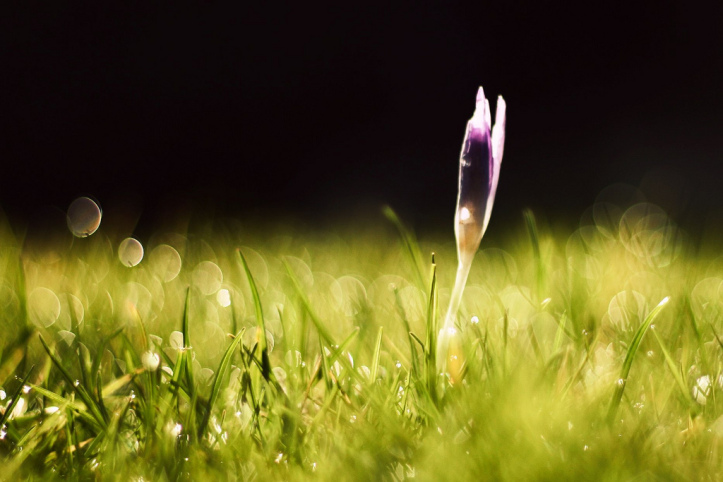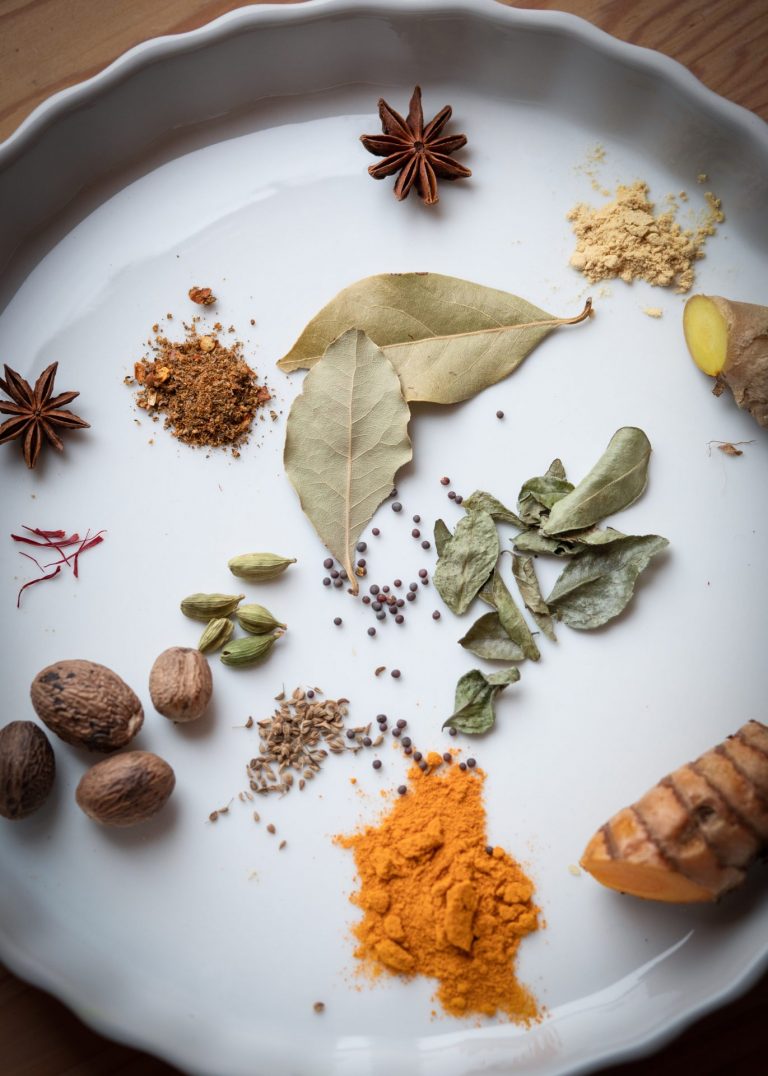I am an Ayurvedic practitioner. This means that for work I help people to find balance in their lives through diet, lifestyle, herbs, relaxing treatments and detoxing. For me, the principles for finding balance are clear and simple. However, the main challenge I find in this profession is that I have to fight against prejudices people have about this system of healing— particularly the notion that it is very complicated.
At first, I myself found this system to be complicated. But the more I studied it, the more I understood that the healing principle of nature is actually very simple. It can be applied anywhere, anytime and it can be practiced by anyone. As we are all creatures of nature, we all practice Ayurveda all the time, even without being conscious of it. We each have an innate and instinctive way of finding balance so that we can be content and thrive, and this healing dance we perform is pretty simple to understand.
My mission has become to try my best to convey the principles of Ayurveda in the simplest, most accessible way, without having to bring into conversation Sanskrit terms and deeper theory which to many might sound esoteric.
To start explaining what Ayurveda is, let’s put it in one sentence and start breaking it down for what it means in actual practice:
Ayurveda is a timeless universal system of medicine that aims to regulate digestive and metabolic activity by feeling the environment, both internal and external.
Feelings are important
 I think the best way to start deciphering this is to look at the feeling aspect. By feeling the environment, living cells adjust to their environment with their sensors. The environment can be for example hot or cold, dry or moist. By sensing these qualities, the cells regulate their metabolism, they act according to what they feel.
I think the best way to start deciphering this is to look at the feeling aspect. By feeling the environment, living cells adjust to their environment with their sensors. The environment can be for example hot or cold, dry or moist. By sensing these qualities, the cells regulate their metabolism, they act according to what they feel.
Natural practice of medicine is the medicine of feeling, sensing the environment. Plants and animals go about their lives by perceiving how the environment feels. Their activities are determined by the amount of heat, exposure to light, dryness or humidity etc. They feel these qualities and make adjustments based on the their level of comfort. If the temperature outside the cell is too hot, then the metabolic activity is lowered to cool the cell down. If the environment is dehydrated, mechanisms to promote hydration are turned on.
Complex organic entities as animals, with collections of tens of trillions of cells, also act from this same principle. When we feel cold we naturally tend to behave consciously and/or unconsciously in a way that restores the perfect balance of body heat. When we are dehydrated and the skin is dry, we instinctively know to hydrate and moisturise more.
The aim of regulating is to find perfect balance with the environment, a feeling of ease and comfort. True healing therefore starts from feeling, and Ayurveda involves studying feelings with a high degree of sensitivity, so that we can feel qualities as accurately as possible, inside and out, and create a perfect balance of opposites. Ayurveda operates, therefore, from the natural truth that adjustment and adaptation are the keys to survival and to thriving in the world.
Individual feelings
Ayurveda also takes into account the individual point of view, because every feeling is unique to individuals. We each perceive our environment differently. Some are sensitive to heat, while others suffer cold easily. Some like dry air, others prefer humidity. The regulating activities change from person to person as we all have different metabolic needs. The healing protocols therefore have to follow these individual needs.
Changing feelings
Adaptation happens through what we choose to eat and do. We need to change our diets and lifestyles from time to time because life is a process and the qualities around us change constantly. We experience different qualities between day and night and also between seasons. The qualities of these time periods determine how our cells must adapt. We need to apply different behavioural patterns so that they match the metabolic needs of these time periods. Once these needs are satisfied, we feel in balance, healthy, strong, energetic and able to digest and metabolise what we put in our bodies.
Soul is the feeler
The last thing I want to mention about feeling is that this activity happens at the soul level. When we feel we connect with the soul, we put the mind activity aside and let the qualities be experienced in a deeper level of our existence. The universal Soul, or the cosmic consciousness, is the great experiencer which gives us the understanding and intuition on what direction we have need to move in with our diet and lifestyle. The problem is that to large extent we are conditioned not to feel, to suppress our deepest guidance from our soul and instead rationalise foremost with our minds. This leads to a problem with regards to true healing because the mind is always conditioned and influenced by whatever life experiences we’ve gone through or whatever media information we are exposed to. That said, the mind can be useful in true healing as well but only if it is used to serve and reason out whatever soul level connection has already been made. It should never be a primary tool. Healing is feeling. The soul most accurately feels the qualities of comfort and pain.
Agni – Digestive fire
Accurate adaptations guarantee the perfect flow of our digestive and metabolic fire. In Ayurveda we call this fire agni. The fire is heat. Too much or too little heat disturbs the digestion. The digestive tract is covered with mucous. Mucous is wet and cold. Too much of these qualities increase mucous and the healthy cover of mucous becomes too thick, compromising absorption of nutrients. Too much dryness wears the mucous layer down causing irritation and consequent inflammation. An irritated digestive tract is reactive and unable to digest hard proteins like lactose and gluten. Wet, cold, thick and sticky mucous lining can be repaired by ingesting dry, warm, and light food items (e.g. fasting, spices, legumes). Dry and irritated mucous, in contrast, likes hydrating and smooth food items (e.g. smooth soups, banana, avocado).
Good agni – good adaptation
The importance given to the digestive fire in ayurveda is maybe it’s strongest point of value in comparison to allopathic mainstream medicine. Although the trend is changing slowly towards understanding that food and good digestion is medicine, there is very little emphasis in general practice in how we digest our foods. Good and bad digestion depend on degree of adjustment to the conditions around us. Conversely, how we digest determines our capacity to adjust. Nourishment naturally depends on what we eat but more importantly it depends on how we digest and especially absorb our food. If digestive capacity is low, erratic or too high then even the best foods high in every possible cancer fighting phytochemical can become toxic. This is why good digestion is the main aim of this system of natural medicine.
Adjustment happens always and everywhere
The principle of natural healing is always the same: the opposite qualities balance each other. This is a universal, scientific truth that has stood the test of time. This is the way nature balances itself. This system is not dependent on humans, it was not invented by humans and it will continue to be practiced by plants and other animals in the possible event of human extinction (if humans leave any organic life behind).
Healing naturally through Ayurveda, therefore, is essentially straightforward: we balance opposites and stay in tune with natural cycles. The medicine practiced from place to place needs to be in line with the qualities affecting the bodies and minds. The advantage we have as humans is that we can combine spontaneous natural healing with our own conscious actions, or in reverse, consciously slow down or stop the healing process. The choice is ours. By choosing a natural healing diet and lifestyle, we aim to have a long life without disease and die without pain. These are priceless gifts that Ayurveda and other natural systems of medicine allow us to enjoy.





